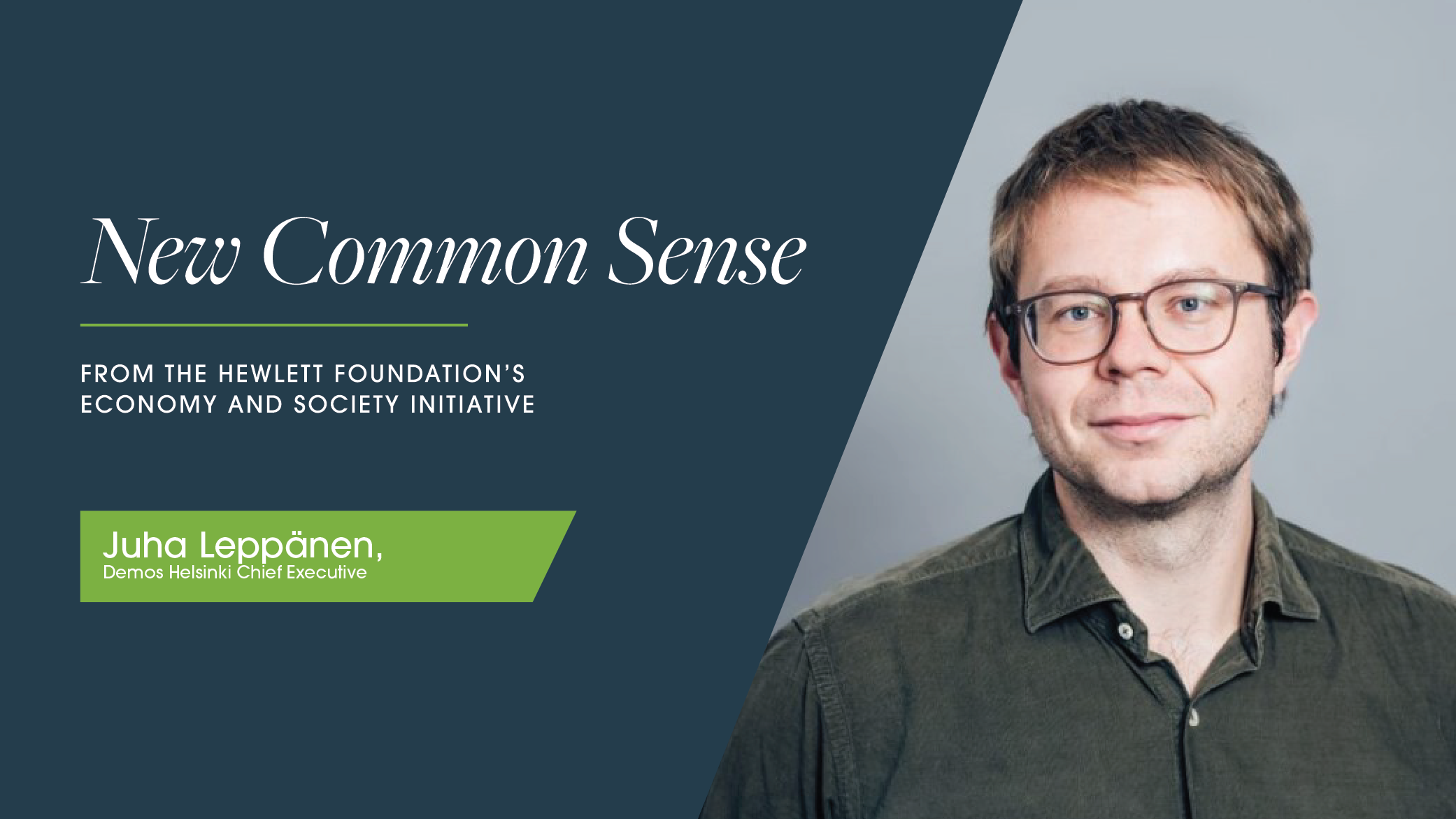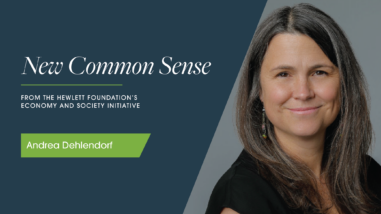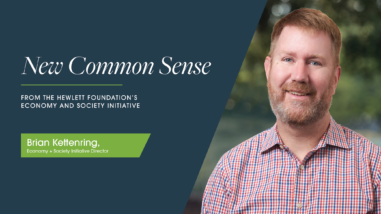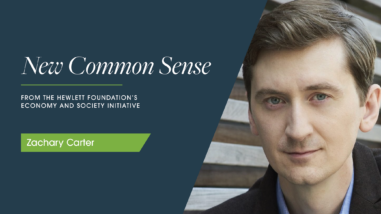5 Questions for Juha Leppänen of Demos Helsinki

1) How can governments’ responses to the pandemic inform the ways new economic models can learn and prepare for future crises — to shift responses away from neoliberal-inspired approaches and advance new economic models?
The pandemic really did put governments in the limelight. Some liberal democracies — like New Zealand or Finland — were more successful than others. We should engage in a deeper discussion on why that was the case. For instance, do rigid silos really work in the 21st century, when many crises require both coherence of policy and strong horizontal coordination? For a new economic movement, recognition of the importance of governance — and the very detailed nuances of it — are crucially important in shifting away from our current efficiency-focused government systems.
The pandemic showed that plain technocratic responses, derived from neoliberal hegemony, are often not best suited to a crisis. This is a really important and challenging point. The core underlying assumption of technocracy is that there are experts who, through their expertise, can enforce the right tweaks or interventions. However, the pandemic revealed that this expertise can be frail in the absence of evidence. Uncertain, complex, and rapidly changing situations — like a pandemic — call for more pluralistic approaches. What does this mean for new economic models? We need approaches to governance that recognize the uncertainty and experiment with novel policy ideas — not only new methods, but also rethinking the ethos of civil service in the 21st century. New economic models call for a new vision of government fitting our era. This is the perfect time to engage in this dialogue, as the limelight is still on governmental action (and inaction) due to the pandemic.
The pandemic also showed that bold public action can be legitimate, desired, and effective. In Finland, our center-left government took a stance of strong restrictions and clear communication with its initial pandemic response complemented by economic support. At least as of late 2021, these responses both had popular support and clear indications of success: Finland’s economic performance was among the highest in the OECD countries. Similarly, going against the grain in economic thinking can get public support, but it needs to be proactive, deliberate, and consistent — and well-communicated. The crisis may have prompted bold action, but perhaps the biggest factor was a feeling of self-efficacy. Political decision makers believed that they could make the necessary economic decisions, like providing fiscal support, because the pandemic changed priorities. Suddenly, health became the key end goal and economy as one of the means to get there. With conscious and coherent action, one can challenge the hegemonic paradigm.
2) Can you envision what a collaborative, interdisciplinary, and diverse movement would look like — what kinds of actions and policies would it promote to advance new economic models?
It’s both possible to envision such a movement and, I would also state, that a movement promoting new economic models should be collaborative, interdisciplinary, and diverse. This pluralism is the key strength in advancing new economic models, as we don’t yet know what economics should exactly look like beyond the current neoliberal hegemony.
But we do know the direction. A recent positive example of a pluralistic movement would be the LGBTQ+ movement: diverse and interdisciplinary, yet capable of pushing societal change. The key is that we need to accept that we cannot manage economic paradigm shifts — societies are much too complex for that, perhaps today more than ever before. Instead, we need to embrace a movement that is collaborative, interdisciplinary, and diverse, and imagine what the actions and policies would look like. Embrace the pockets of action that spring up in different parts of the world.
On actions, we need to experiment systematically. Through experiments on policies and social innovations, we can explore new, radical alternatives. We also need to imagine what the institutional setup for new economic models should look like. In the end, new economic thinking must also have an institutional agenda — that is what the neoliberal wave got right. By embedding the core premises in key institutions, you create a hegemony.
We have started to develop important policies, but we still need both new thinking in reimagining how our societies could look and concrete experiments that start to make the case that we actually can live in new ways. Kate Raworth is doing excellent work in establishing policies to support the doughnut economy approach. Mariana Mazzucato is the most well-known thinker in new industrial and innovation policy. Ideas like the universal basic income and four-day workweeks, as well as ways of rethinking the role of labor and time in our societies, are all examples of the kind of ideas that are gaining traction, but, as said, we still need to do more work seeding ideas of collaborative ownership and global commons.
3) You found in your research uneven development of the new economy ecosystem across Europe, even as there is energy and activity across the continent. What conclusions or recommendations do you draw from this?
We found an overrepresentation of actors in Western Europe and particularly in the U.K. I would say that this reflects reality, but is also somewhat the product of certain biases. Yes, Western Europe and the U.K. have more actors and reactions to the neoliberal consensus — and naturally ecosystems form around actors with aligned causes. Also, economic and social realities are different across Europe and the priorities in societal debates may, understandably, be different in Eastern parts of Europe.
At the same time, there’s a lot of economic and social action in Southern and Eastern Europe that may not have translated yet into organizations. For instance, in Catalonia, there are dozens of bottom-up initiatives exploring new social rights and ownership schemes that could potentially translate into more structured agendas. So for those of us who are fortunate to already be connected with the core movement in Europe, we should use that privilege to continuously explore new actors and lines of thoughts — and connect those with others.
There are two main hindrances to the new economic movement in Europe. First, we have a sense that we’re alone in our cause. Second, we think that others don’t fight the same fight. We do not need to embrace all actors and manage their actions. We should embrace the fact that many already share an ethos: We envision an economy that promotes a fair, sustainable, and joyful future.
4) Have you encountered examples of movements in the Global South or East that might help inform either new economic ideas or approaches to diverse movement-building?
Obviously, there’s a lot happening outside of Europe, which I would separate into two different streams. First, there are examples such as Japan, in which there’s been a long-term difference of trajectory with regards to debt-to-GDP ratio and GDP growth, which shows how an industrial society can pursue macroeconomic policies that are contrary to prevailing E.U. principles. The second stream of examples is even more interesting: In Latin America, there are community-driven examples of new economic thinking in the space of peer banking for collaborative ownership, for instance. You can also see new political movements emerging and coming to power as reactions to the neoliberal hegemony, as we see with the new government in Chile.
While the jury is very much out on implications, my big-picture sense is that for new economic approaches, experiments, and movements outside of the U.S. and Europe can be key, as they might be better able to imagine new, radical alternatives and translate them to reality through experiments or policies. The U.S. and Europe continue to be important for diffusing new ideas, but the real new economics may well be created outside of them.
5) What gives you a sense of optimism in the face of what is clearly a daunting challenge and a long road ahead?
There are so many reasons for optimism. While the world has lived through the pandemic, dozens of individuals, communities, and organizations have worked to design and experiment with new economic models. The wealth of expertise and perspectives is enormous: from basic income to global commons in land use. The community ranges from civic activists to policymakers and everything in between.
I feel we lose ourselves in the quest for perfection. No movement is perfect in its infancy; not even the currently dominant neoliberal movement was — its early days were filled with debates and fights. It is this process of deliberation that is key for any social movement. We shouldn’t be constrained by our limits, but instead be mobilized by our strengths. The new economic movement is pluralistic in its nature. It is led not by a single, but by many actors. This is the source of resilience and persistence.
Although we don’t yet know the exact right recipe for action, we need to establish structures to coordinate and bring together action across the board. This coordination will help reveal the most important battles we need to engage in — and help us win them. The new economic agenda won’t translate into reality without clear and conscious action. But with intent, it can. For that, we need to make the movement matter.



